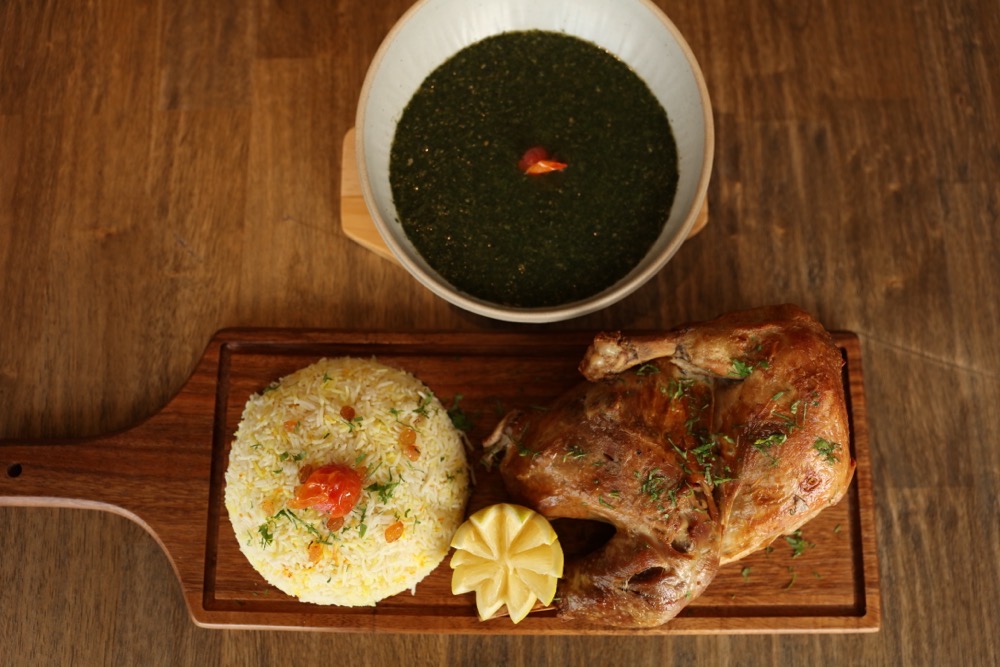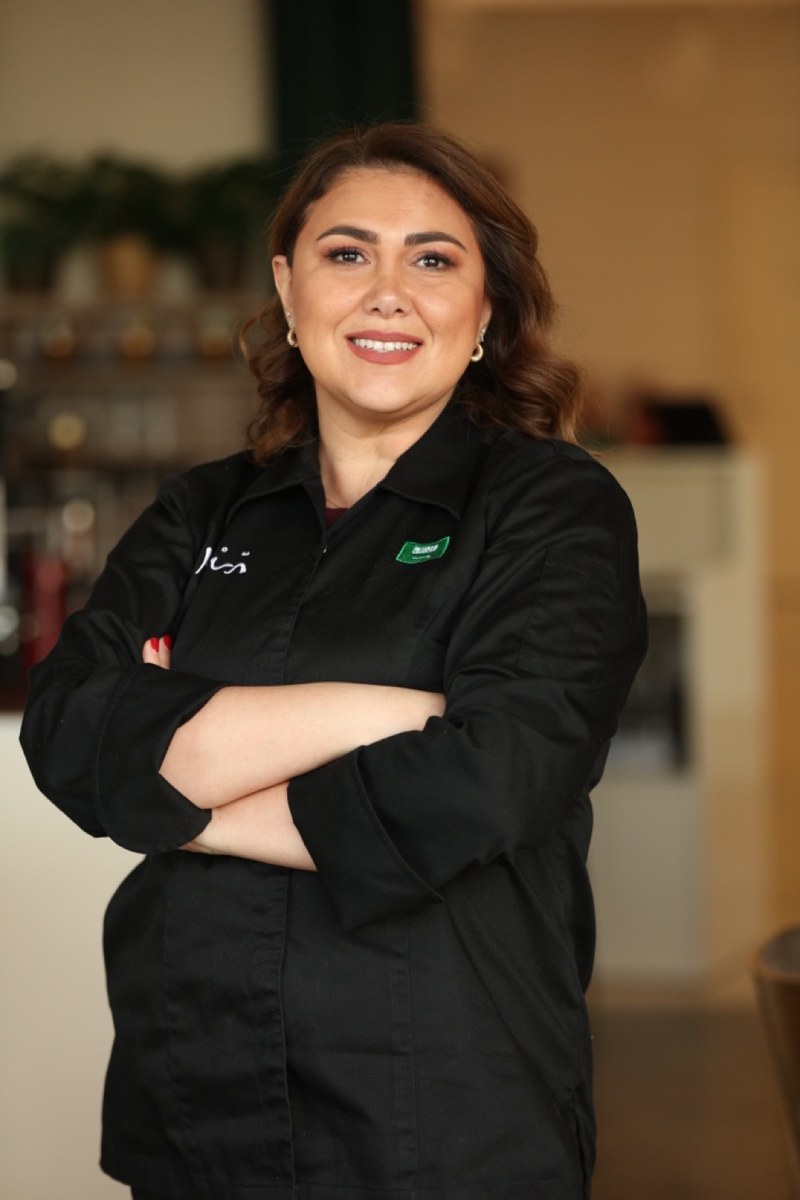MADINAH: When Hatun Madani moved to the US from her native Saudi Arabia for college in the 1990s, she found herself craving food from home. Every Christmas in her college town, the city shut down for the holiday period. To create a sense of community and to overcome her homesickness, she joined with friends to concoct their own version of Christmas.
Madani decided to improve on the traditional turkey with all the trimmings and came up with her now-famous turkey mulokhia dish.
She told Arab News: “I was young, and I am still young. But when I was a teenager, it was new to me; the turkey and all of that. Everything closed during Christmas. So, we used to gather together, friends who used to live in the same building, and my siblings.

Madani is a specialist in Hijazi food and wants to show the world that there is more to Saudi food than just kabsa, chicken, and rice. (Supplied)
“For some reason, we didn’t want it to be pure Christmas. We had to make some changes. I tried it in their traditional way, and it didn’t suit me, so I made my own twist. Mulokhia is my comfort food, so why not use turkey?” she said.
She started making her fusion dish for Christmas every year while there, and when she became a mother, she taught her children to associate turkey with mulokhia.
Mulokhia is made from the leaves of the jute mallow plant and has been a staple of Arabic cuisine since ancient times. Though it is prepared in many ways — as a soup, stew, with beef or chicken, or without meat — it is enjoyed throughout the Arab world and Africa.
Self-taught chef Madani now owns a restaurant in Dubai focused on Saudi cuisine. She measures ingredients with her eyes and can tell what is missing from a dish using her sense of smell and intuition. Her late mother taught her to cook with her heart and to be calm while in the kitchen.
As a college student in America, she recalls having to buy frozen mulokhia and even in Dubai today, fresh mulokhia is only available in summer. However, fresh mulokhia leaves can be bought all-year-round in Saudi Arabia.
Madani is a specialist in Hijazi food and wants to show the world that there is more to Saudi food than just kabsa, chicken, and rice.

Self-taught chef Madani now owns a restaurant in Dubai focused on Saudi cuisine. (Abdullah Rammal)
She said: “When you travel to a hotel and ask about restaurants, there are Chinese, Japanese, French, Italian. But you never hear of Saudi restaurants. Why not? We have a cuisine and it’s very rich and very yummy. And it’s because it is a melting pot from all around.”
Food, she added, was more than just fuel for the body, it was how she connected people to each other and to themselves.
This Christmas, she is reminding people to break bread with those from all faiths and backgrounds because, “it is how we all can co-exist and have a divine feast.”
Madani said: “One thing I want the young generation to understand is not to lose their heritage, the culture, the cuisine. And the love.
“People laugh at me when I say, ‘oh, I cook with love,’ but I do. If you are what you eat, and your food is made with love, then you are love.
“I’m happy to bring back the turkey mulokhia and hope you try it, too,” she added.

















